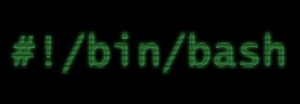Contents
Overview
Update multiple Linux servers and distributions using any Linux Distribution.

Requirements
– Linux Server/Desktop manger (in this article we will use CentOS – we will call it MainServer)
– Linux Servers/Desktops to manage (we will use CentOS and Ubuntu – names: ServerC, ServerU)
– SSH Connection
– Root Access
establish SSH connection without password between the MainServer and ServerC,ServerU
Generate id_rsa, id_rsa.pub in the MainServer:
1 | ssh-keygen (do not use a password - just hit Enter) |
ssh-keygen (do not use a password - just hit Enter)
Copy (and rename) id_rsa.pub to authorized_keys on Server
1 2 | scp -r -P 22 /root/.ssh/id_rsa.pub ServerC:/root/.ssh/authorized_keys scp -r -P 22 /root/.ssh/id_rsa.pub ServerU:/root/.ssh/authorized_keys |
scp -r -P 22 /root/.ssh/id_rsa.pub ServerC:/root/.ssh/authorized_keys scp -r -P 22 /root/.ssh/id_rsa.pub ServerU:/root/.ssh/authorized_keys
You can connect now as root between the servers without a password.
Create the manager script
Create the script to update multiple Linux servers, a file called updateall.sh:
Create a folder called /scripts/ (you can use whatever you want)
We will store all files within that folder.
1 2 3 4 5 6 7 8 9 10 11 12 13 14 15 16 17 18 19 20 21 22 23 24 25 26 27 28 29 30 31 32 33 34 35 36 37 38 39 40 41 42 43 44 45 46 47 48 49 50 51 52 53 54 55 56 57 58 | #!/bin/bash workdir=/scripts logfile=$workdir/updaterun.run listfile=$workdir/updateall.lst ( cd $workdir/ if [ -a $logfile ] ; then echo "" echo "Script Is Running! check " $logfile echo "" exit; fi echo "**************************************" echo "* Starting update process..." $(date +%y%m%d) "*" echo "**************************************" cat $listfile | while read line do dist=$(echo $line | awk '{print $NF}') case $dist in 'CentOS'|'RHEL') server=$(echo $line | awk '{print($(NF-2))}') port=$(echo $line | awk '{print($(NF-1))}') echo "" echo "**************************************" echo "***** " $server " " $dist echo "**************************************" echo "" ssh -n -l root -p $port $server 'yum update -y -y' ;; 'Debian'|'Ubuntu') server=echo $line | awk '{print($(NF-2))}' port=echo $line | awk '{print($(NF-1))}' echo "" echo "**************************************" echo "* " $server " " $dist " *" echo "**************************************" echo "" ssh -n -l root -p $port $server 'apt-get update -y' ssh -n -l root -p $port $server 'apt-get upgrade -y' ;; *) echo "**************************************" echo "* Unknown Linux Distribution *" echo "**************************************" echo "" ;; esac done echo "" echo "************************************************************" echo "** Update multiple Linux servers and distributions Done **" echo "************************************************************" echo "" ) 2>&1 | tee -a $logfile mv $logfile /scripts/log/update-$(date +%y%m%d) |
#!/bin/bash
workdir=/scripts
logfile=$workdir/updaterun.run
listfile=$workdir/updateall.lst
(
cd $workdir/
if [ -a $logfile ] ; then
echo ""
echo "Script Is Running! check " $logfile
echo ""
exit;
fi
echo "**************************************"
echo "* Starting update process..." $(date +%y%m%d) "*"
echo "**************************************"
cat $listfile | while read line
do
dist=$(echo $line | awk '{print $NF}')
case $dist in
'CentOS'|'RHEL')
server=$(echo $line | awk '{print($(NF-2))}')
port=$(echo $line | awk '{print($(NF-1))}')
echo ""
echo "**************************************"
echo "***** " $server " " $dist
echo "**************************************"
echo ""
ssh -n -l root -p $port $server 'yum update -y -y'
;;
'Debian'|'Ubuntu')
server=echo $line | awk '{print($(NF-2))}'
port=echo $line | awk '{print($(NF-1))}'
echo ""
echo "**************************************"
echo "* " $server " " $dist " *"
echo "**************************************"
echo ""
ssh -n -l root -p $port $server 'apt-get update -y'
ssh -n -l root -p $port $server 'apt-get upgrade -y'
;;
*)
echo "**************************************"
echo "* Unknown Linux Distribution *"
echo "**************************************"
echo ""
;;
esac
done
echo ""
echo "************************************************************"
echo "** Update multiple Linux servers and distributions Done **"
echo "************************************************************"
echo ""
) 2>&1 | tee -a $logfile
mv $logfile /scripts/log/update-$(date +%y%m%d)save the file and give execute permissions
1 | chmod +x updateall.sh |
chmod +x updateall.sh
Create the list file, a file called ‘updateall.lst’ with the following structure:
hsotnames/ip, port, Linux distribution of the servers (each hostname/ip in a separate row)
for example:
1 2 | ServerC 22 Ubuntu ServerU 22 CentOS |
ServerC 22 Ubuntu ServerU 22 CentOS
Manage automatic updates
For example run the ‘updateall.sh’ script every Saturday at 01:05 :
1 2 | crontab -e 1 5 * * 6 /scripts/updateall.sh |
crontab -e 1 5 * * 6 /scripts/updateall.sh
This is an explanation of crontab:
| Minute | Hour | Day of Month | Month | Day of Week | Command |
| (0-59) | (0-23) | (1-31) | (1-12 or Jan-Dec) | (0-6 or Sun-Sat) |
Don’t forget to check /scripts/log/ files to see that everything is in order once in a while.
DevOps/IT Specialist, Musician.
IT Manager – Faculty of Exact Sciences, Bar-Ilan University
Personal Website
